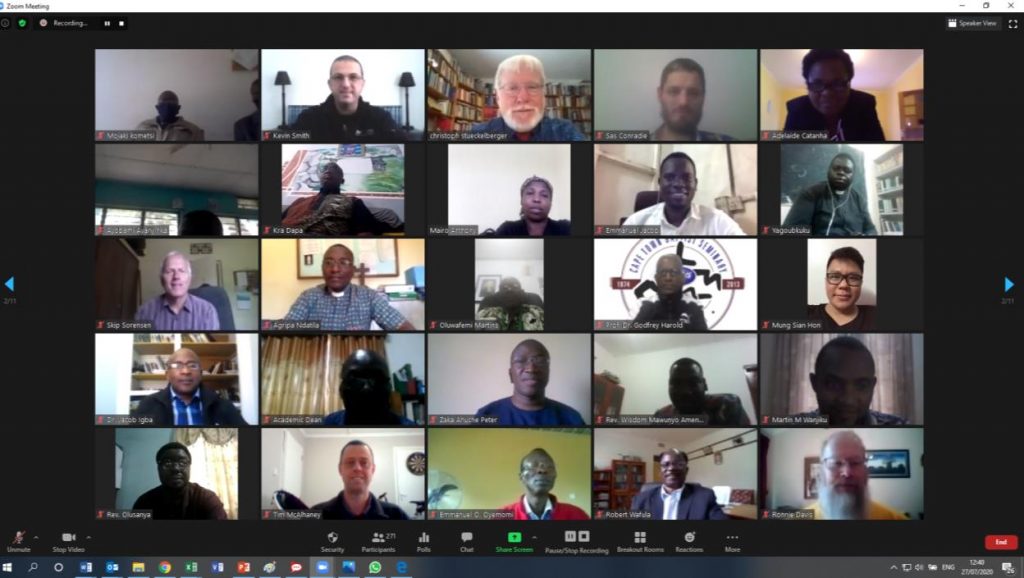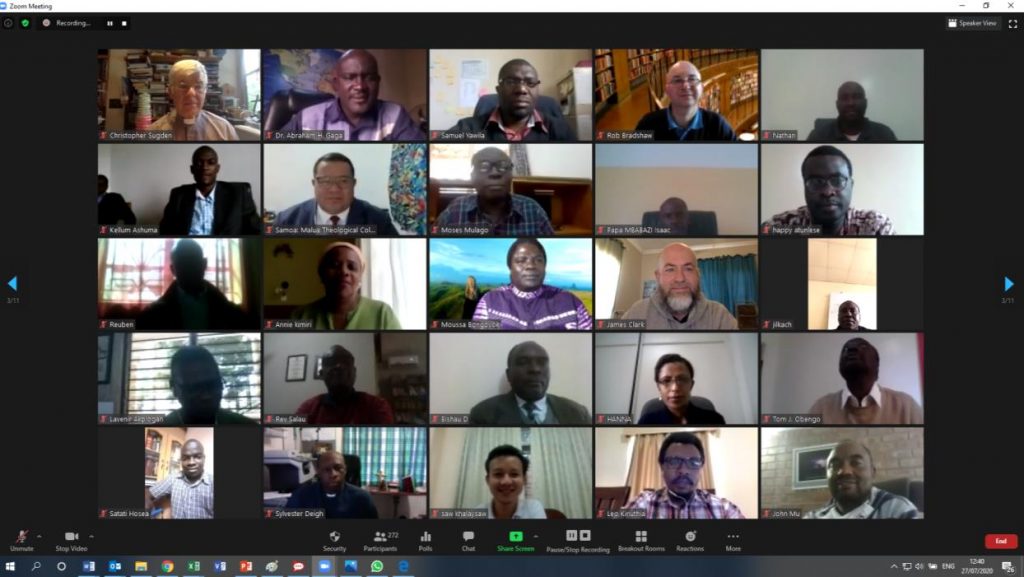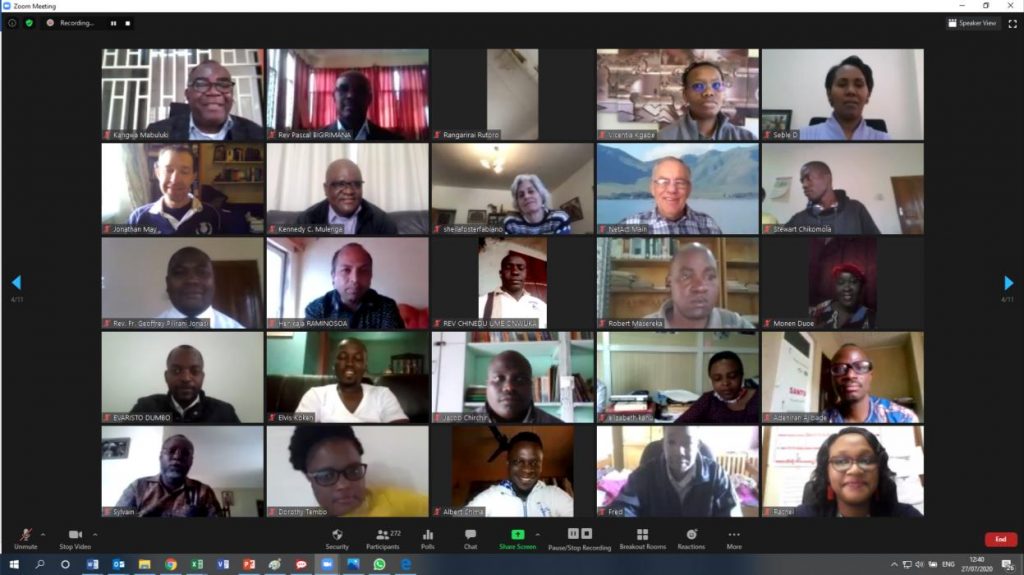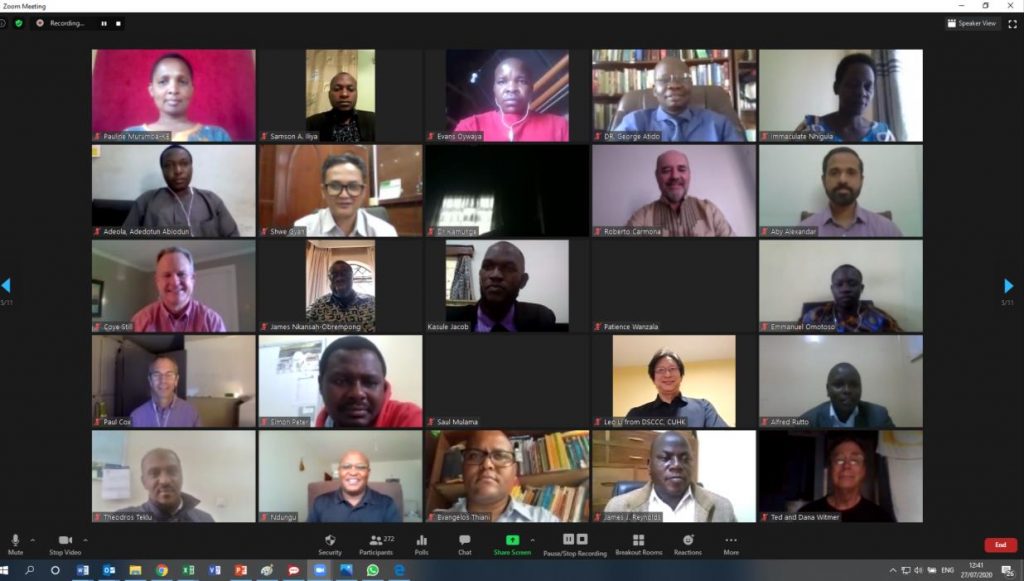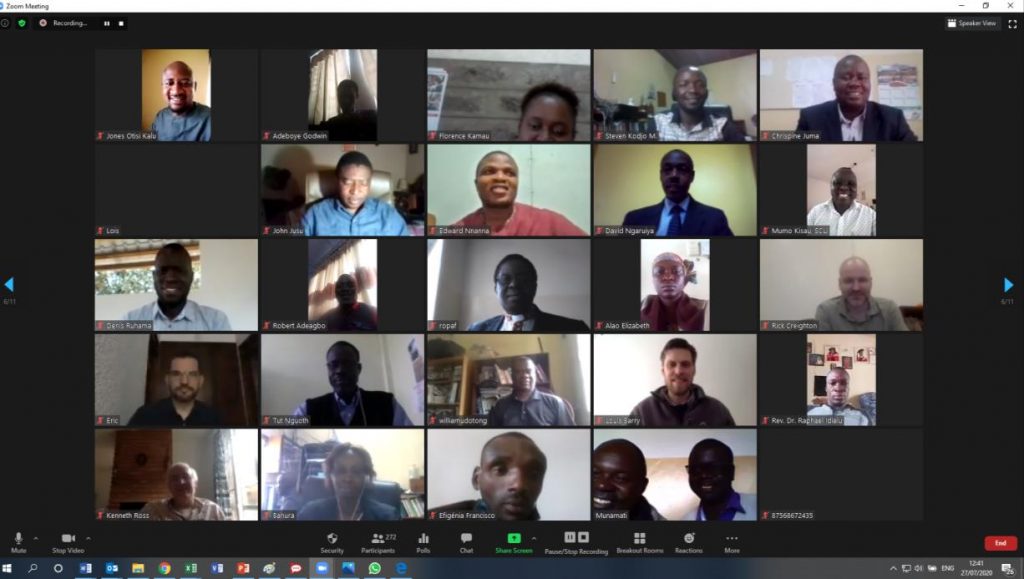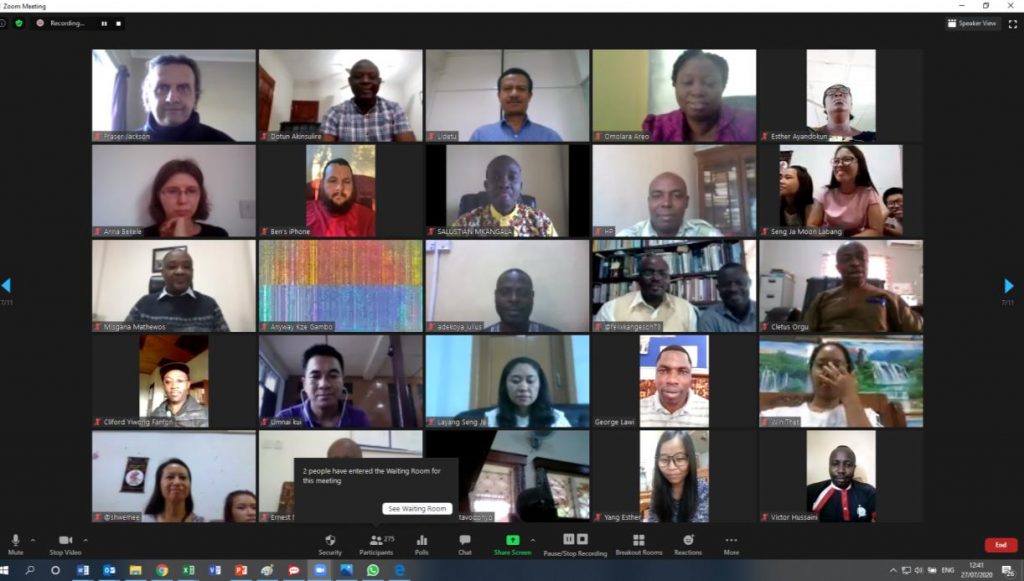Online workshop trains educators in online theological education
Myanmar is currently in the grip of a brutal and isolating civil war. Christians in this nation are struggling greatly to continue to train the next generation of leaders as conflict rages around them. At the request of our partners in the country, OCRPL’s networking arm called the Global Institute for Leadership and Development (GILD) project stepped in to offer Christian faculty training in using online education.
Due to the ongoing national crisis in Myanmar, we saw that the learners’ educational experiences were regularly hampered. The challenge manifested itself in the form of irregularities in the supply of electricity and internet connectivity issues. Even through these difficulties, participants showed signs of earnestness and a willingness to learn despite the country being in a state of crisis.
From 10 April to 14 April 2023, GILD collaborated with a group of Christian institutions in Myanmar to organise an online training workshop. Twenty-three faculty members from various institutions were able to join, in addition to the facilitators and organisers.
In order to best teach this subject, which was new to many of the participants, we built an online course especially for them to work through. This course was titled “Introduction to Online Learning for Theological Educators” and was designed, developed, and subsequently made available online via a learning management system. This format was chosen as it enabled the participants to directly engage themselves practically in online learning instead of simply listening to presentations on the subject.
We began the training with an hour-long course induction and enrolment session on 10 April as the majority of the learners were unfamiliar with this form of self-paced learning. After that, the learners were given the chance to go through the course at their preferred pace and at their convenience. Following this, a two-hour workshop was conducted under the guidance of our colleagues (online facilitators). The workshop consisted of presentations delivered by the facilitators and active participation from the learners.
Upon the conclusion of the workshop, it was noted that the participants displayed a keen interest in delving deeper into the intricacies of blended learning. This form of teaching uses a combination of in-person and online teaching. Following this workshop, we are conducting a comprehensive exploration of the various forms of blended learning in order to tailor the approach to the specific requirements and circumstances present in Myanmar. We are also following up with participants who showed increased aptitude and offered further training.
A Workshop Online Theological Education for Networks of Theological Institutions in Asia and the Pacific.
From the 28th-30th of September, we hosted a workshop for theological educators and institutions across Asia and the Pacific. Over the three days, around 326 leaders and educators from 30 countries across Asia and the Pacific attended the workshop at various points. We worked closely with theological networks* to help explain how these institutions could overcome the challenges of the pandemic, by successfully adopting and adapting to online theological education. The workshop followed a similar pattern to the Africa workshop.
The first day was spent casting the vision for theological training. Presenters from networks and institutions explained the need for online theological training and gave their own personal experiences on online learning. The final two days focused on the practical side of online training. Presenters gave a range of tutorials, such as creating audio-visual content and utilising online learning platforms. For many participants, online theological training was a new concept altogether and it was enthusiastically received.
Comments from attendees were mostly positive, some commenting that, “All [the sessions] were very helpful.”; “It was very informative and motivating”; and “It was very informative and at the same time, challenging. The organizers are sensitive to the needs/context of the majority world.”
Our next steps will be to collaborate with networks and institutions to address gaps in theological educations, develop resources will be of benefit (such as a low-cost Learning Management System), and offer a GILD as a platform to bring together scholars and educators across Asia-Pacific so they can collaborate together to meet the needs of church leaders on the ground.
*The workshop was hosted by the Oxford Centre for Religion and Public Life (OCRPL), Barnabas Fund, and the Global Institute for Leadership Development (GILD). In association with Asia Theological Association (ATA), Tearfund, Euro-Asia Accreditation Association (EEEA), Middle East and North Africa Association for Theological Education (MENATE), Programme in Theology and Cultures in Asia (PTCA), South Pacific Association of Theological Schools (SPATS), Christian Conference of Asia (CCA), Association of Theological Education in Myanmar (ATEM), Foundation for Theological Education in South East Asia (FTSEA), ICETE academy, globethics.net, Tearfund, theologyontheweb.org and others.
A Workshop Online Theological Education for Networks of Theological Institutions in Africa (26th-29th July 2020).
This past year has brought a great deal of challenges to theological institutions and education in Africa. These challenges will result in significant changes to the way these institutions deliver theological training and education in the future. However, in God’s providence these challenges are not without opportunity. The opportunity being the chance to move and deliver a significant portion of training and resources online. As such, a number of networks and organisations* collaborated to organise a three-day Online Workshop, hosted by GILD, to help explain how these institutions could successfully adopt and adapt to online theological education.
Over the three days a variety of content was covered and around 521 leaders and educators attended. The first day was spent casting the vision for theological training – explaining the need for online theological training and how this can be possible. The final two days focused on the practical side of online training, such as creating audio-visual content, accessing online platforms, and using online platforms to deliver content. For many participants, online theological training was a new concept altogether and it was enthusiastically received. Attendees commented that, “The workshop was very insightful and interesting.”, “The program was educative and timely.”, and “This was a huge eye opener!”
Moving forward, we are hoping to offer more training opportunities and support for these institutions. Not only was the conference pertinent for this moment, but it also provided a unique space to bring together scholars, educators, and facilitators from all across Africa. As such, our hope is that we can serve as a platform for continued collaboration and sharing of resources as we journey with one another for the furtherance of the Gospel and the strengthening of God’s church.
*The event was hosted by the Oxford Centre for Religion and Public Life (OCRPL), Barnabas Fund, and the Global Institute for Leadership Development (GILD). In association with the Network for African Congregational Theology (NetACT), the Association for Christian Theological Education in Africa (ACTEA), Africa Baptist Theological Education Network (ABTEN), The Council of Anglican Provinces of Africa (CAPA), The Association of Pentecostal Theological Education in Africa (APTEA), South African Theological Seminary (SATS), Globethics.net, KLESIS, Tearfund, theologyontheweb.org and others.
